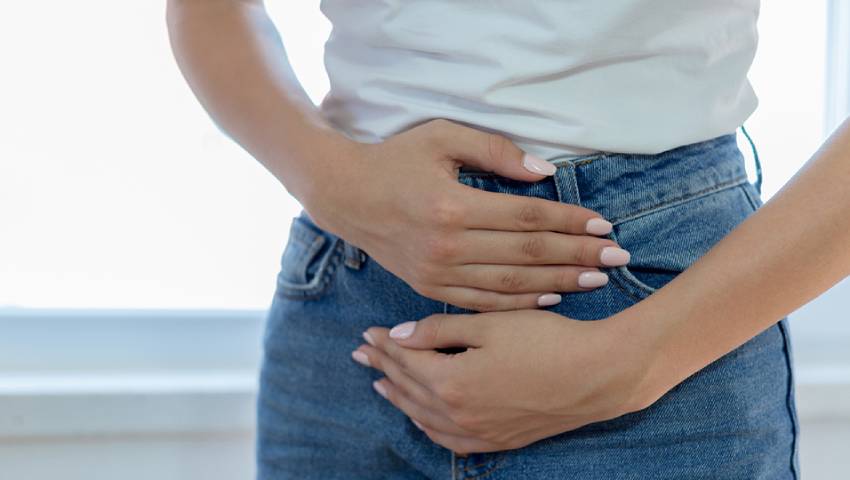
- 27/02/2024
- Dr. Kunaal Shinde
- 0 Comments
- Blog
All you Need to Know about PCOS
We know that Polycystic ovary syndrome (PCOS) is a very common hormonal disorder in Women. In India, more than 30% of women and 7 teenagers have that disease, But not everyone is aware of the symptoms, long-term effects, and how PCOS can best be managed. Dr. Kunaal Shinde – a Gynecologist and Laparoscopic surgeon in Pune identified this problem and shared valuable information about PCOS. In this Blog, He shares all the information about PCOS and answers the common questions related to PCOS. If you are suffering from PCOS then you’re at the right place. Read the complete blog for detailed information, If you have still any queries or require treatment then consult Dr. Kunaal Shinde at Love your belly Clinic at Baner.
Let’s see
What is PCOS?
Polycystic ovary syndrome or PCOS impacts 10 to 15% of women yet many patients don’t get a diagnosis until their 30s. Recognizing the signs and risk factors associated with PCOS may help patients get care earlier leading to positive health outcomes later in life. PCOS is a disorder of increased androgen production which can lead to irregular periods and insulin resistance. Despite its name, PCOS does not refer to ovarian cysts, which are cysts that can grow in or on an ovary. Instead, those with PCOS tend to have ovaries with many follicles, which are completely normal in younger patients. Women of any age can develop PCOS symptoms and its symptoms can be mild or severe. Dr. Kunaal Shinde – The Robotic Gynaec Onco surgeon in Pune, has identified this problem and guided the woman about PCOS/PCOD Condition. He provides the Best Services and guidance.
What exactly is PCOS?
PCOS is a common hormonal condition that impacts women ages 18 – 44. It is an umbrella term in that it covers a spectrum of challenges associated with those hormone imbalances, including irregular periods, excessive facial and bodily hair growth, acne, weight gain or difficulty losing weight, and fertility problems.
What are the symptoms of PCOS?
The biggest red flag for PCOS is a combination of symptoms. These can include:
- Irregular or missed periods
- Cystic inflammatory acne
- Increased facial and body hair
- Struggles with weight gain
- Thinning hair on the head or male-pattern baldness
- Changes in mood
- Darkening of skin (especially on neck, armpits, and/or groin)
- Excess skin or skin tags (usually on the neck or armpits)
What causes PCOS?
The cause of PCOS is unknown, but heredity seems to play a role, so women who have a close female relative with PCOS are more likely to have PCOS themselves. Excess insulin and excess androgen may also contribute to the hormonal imbalance that causes PCOS.
What are the symptoms of PCOS?
The two main symptoms of PCOS are irregular menstrual cycles and signs of too much androgen production. Excess androgen can cause unwanted facial and body hair. Many women may notice these symptoms on their own, but a medical exam is still needed to confirm if someone has PCOS and to check for other related metabolic abnormalities, like diabetes.
What can women with PCOS do to manage their symptoms?
Women with PCOS may notice an improvement in their health when eating a balanced diet and getting regular exercise. For those who are overweight, losing weight may also help lessen symptoms. A Fertility Expert may recommend/prescribe birth control pills to women with PCOS who wish to regulate their menstrual cycles, control excessive hair growth, and reduce hormonal acne. Progestin therapy (such as a progestin “minipill” or an IUD containing progestin) can also help women regulate their periods and protect against endometrial cancer. There are a few different medications that women can take to lower their insulin and promote ovulation, which can be discussed with a gynecologist/Expert. Finally, electrolysis and laser hair removal are two options for removing unwanted facial hair.
How is PCOS treated?
There is no cure or specific treatment for polycystic ovary syndrome. There is scope to manage and keep the symptoms under control. This can be done through lifestyle modifications (changes in diet and physical movement), a topical treatment for acne, hair loss, and hirsutism.
PCOS can manifest differently in each person, therefore there cannot be a course of treatment that suits everyone. It is best to seek care and treatment that addresses your concerns, symptoms, and life-stage goals.
Can you have a healthy pregnancy with PCOS?
Absolutely! While there is an increased risk of gestational diabetes, high blood pressure, and possible preterm delivery described with PCOS pregnancies, most pregnancies occur without complications. Again, pre-pregnancy planning is important. Living a healthy lifestyle that includes exercise, healthy eating, and getting enough sleep before getting pregnant will likely be beneficial in the early stages of pregnancy. Interestingly, losing weight before pregnancy for those who are of higher weight has not been associated with improved pregnancy rates. Overall, living a healthy lifestyle is associated with lower pregnancy risks.
You are not alone:
PCOS may also cause anxiety and depression, and some of the symptoms may lead to a negative body image. Please know there are options available to you. If you are looking for Infertility Treatment and PCOS/PCOS Problems, Dr. Kunaal Shinde provides the Best PCOS/PCOD Treatment in Baner, Pune. Talk to your gynecologist and your primary care provider. If you need to connect with a gynecologist, for an updated list of those serving women in our region. Book an appointment for an updated list of those serving women in our region.

.png)